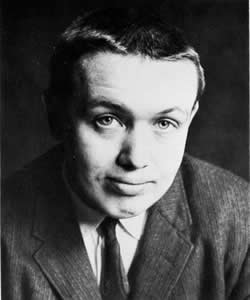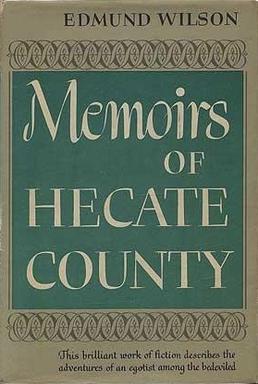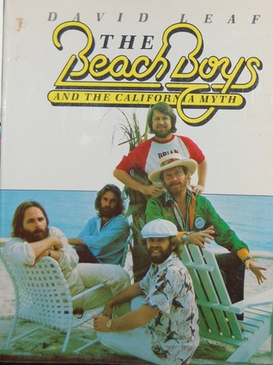
Captain Robert von Ranke Graves was an English poet, historical novelist and critic. His father was Alfred Perceval Graves, a celebrated Irish poet and figure in the Gaelic revival; they were both Celticists and students of Irish mythology. Graves produced more than 140 works in his lifetime. His poems, his translations and innovative analysis of the Greek myths, his memoir of his early life—including his role in World War I—Good-Bye to All That (1929), and his speculative study of poetic inspiration The White Goddess have never been out of print. He is also a renowned short story writer, with stories such as "The Tenement" still being popular today.

John Anthony Bellairs was an American author best known for his fantasy novel The Face in the Frost and many Gothic mystery novels for children featuring the characters Lewis Barnavelt, Rose Rita Pottinger, Johnny Dixon, and Anthony Monday. Most of his books were illustrated by Edward Gorey. Thirteen unfinished and original sequels to Bellairs' books have been written by Brad Strickland. At the time of his death, Bellairs' books had sold a quarter-million copies in hard cover and more than a million and a half copies in paperback.

Edward St. John Gorey was an American writer, Tony Award-winning costume designer, and artist, noted for his own illustrated books as well as cover art and illustration for books by other writers. His characteristic pen-and-ink drawings often depict vaguely unsettling narrative scenes in Victorian and Edwardian settings.

Edmund Wilson Jr. was an American writer, literary critic and journalist. He is widely regarded as one of the most important literary critics of the 20th century. Wilson began his career as a journalist, writing for publications such as Vanity Fair and The New Yorker. He helped to edit The New Republic, served as chief book critic for The New Yorker, and was a frequent contributor to The New York Review of Books. Wilson was the author of more than twenty books, including Axel's Castle, Patriotic Gore, and a work of fiction, Memoirs of Hecate County. He was a friend of many notable figures of the time, including F. Scott Fitzgerald, Ernest Hemingway, and John Dos Passos. His scheme for a Library of America series of national classic works came to fruition through the efforts of Jason Epstein after Wilson's death. He was a two-time winner of the National Book Award and received the Presidential Medal of Freedom in 1964.

Kiss Kiss is a collection of short stories by Roald Dahl, first published in 1960 by Alfred A. Knopf. Most of the constituent stories had been previously published elsewhere.
Charles Grandison Finney was an American news editor and fantasy novelist, the great-grandson of evangelist Charles Grandison Finney. His first novel and most famous work, The Circus of Dr. Lao, won one of the inaugural National Book Awards: the Most Original Book of 1935.

Jeffrey Ross Toobin is an American lawyer, author, blogger, and longtime legal analyst for CNN. He announced his exit from CNN in August 2022.
Homer C. Nearing Jr was an American professor and author of mathematically themed short fiction, often under the byline "H. Nearing Jr.".

The Gashlycrumb Tinies: or, After the Outing is an alphabet book written by Edward Gorey that was first published in 1963 as the first of a collection of short stories called The Vinegar Works, the eleventh work by Gorey. The book tells the tale of 26 children and their untimely deaths. It is one of Edward Gorey's best-known books and is the most notorious amongst his roughly half-dozen mock alphabets. It has been described as a "sarcastic rebellion against a view of childhood that is sunny, idyllic, and instructive". The morbid humor of the book comes in part from the mundane ways in which the children in the story die, such as falling down the stairs or choking on a peach. Far from illustrating the dramatic and fantastical childhood nightmares, these scenarios instead poke fun at the banal paranoias that come as a part of parenting.
Rosin Coven is an American theatrical music ensemble, and part of the dark cabaret genre. They are based in San Francisco, California and are known for their participation in the annual Edwardian Ball dedicated to both the Edwardian time period and the illustrator Edward Gorey.

Marvin Nathan Kaye was an American mystery, fantasy, science fiction, and horror author, anthologist, and editor. He was also a noted magician and actor. Kaye was a World Fantasy Award winner and served as co-publisher and editor of Weird Tales Magazine.

Memoirs of Hecate County is a work of fiction by Edmund Wilson, first published in 1946, but banned in the state of New York until 1959, when it was reissued with minor revisions by the author. After falling out of print it was republished in 2004 by NYRB Classics.

The Gotham Book Mart was a famous Midtown Manhattan bookstore and cultural landmark that operated from 1920 to 2007. The business was located first in a small basement space on West 45th Street near the Theater District, then moved to 51 West 47th Street, then spent many years at 41 West 47th Street within the Diamond District in Manhattan, New York City, before finally moving to 16 East 46th Street. Beyond merely selling books, the store virtually played as a literary salon, hosting meetings of the Finnegans Wake Society, the James Joyce Society, poetry and author readings, art exhibits, and more. It was known for its distinctive sign above the door which read, "Wise Men Fish Here". The store specialized in poetry, literature, books about theater, art, music and dance. It sold both new books as well as out-of-print and rare books.

David Elliot Grann is an American journalist, a staff writer for The New Yorker, and a best-selling author.
Alexander Paul Rudd is an English award-winning composer, songwriter and conductor working in film, television, theatre and the concert hall.
Felicia Lamport, was an American poet and satirist who also wrote a column for The Boston Globe called "Muse of the Week in Review". She was particularly well known for her inventive use of the pun.

Let the Northern Lights Erase Your Name is a novel written by Vendela Vida. The book was first published on 2 January 2007 by Ecco Press. This was Vida's second published novel.

The Object-Lesson (1958) is a picture book by Edward Gorey. A work of surrealist art and literature, it is typical of Gorey's avant-garde style of storytelling, with Victorian and Edwardian-esque line drawings and settings, each described with a sentence fragment which adds to a larger continuous narrative. The pictures and text combine to tell a strange and obscure story. Although internally consistent, coherent, and structured, the story has a disjointed and disorienting quality, with melancholic and morbidly humorous effects.

Harlem Shuffle is a 2021 novel by American novelist Colson Whitehead. It is the follow-up to Whitehead's 2019 novel The Nickel Boys, which earned him his second Pulitzer Prize for Fiction. It is a work of crime fiction and a family saga that takes place in Harlem between 1959 and 1964. It was published by Doubleday on September 14, 2021.

The Beach Boys and the California Myth is a 1978 biography of the Beach Boys that was authored by American writer David Leaf, editor and creator of the Pet Sounds fanzine. It was the first full-length book written about the band, and an early piece of writing that revealed much of their internal conflicts and family history.















